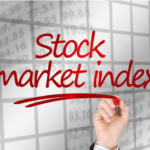Automotive stocks got a minor lift today thanks to recent comments from the White House. The US president, Mr. Donald Trump, took action to benefit automobile manufacturers. The announcement was part of an exchange, which included a proposal for some possible and temporary exemptions from tariffs.
When he spoke to reporters in the Oval Office, Mr. Trump issued a broadside against automakers that source some components from Canada and Mexico. He said he was aware that it takes time for those manufacturers to ramp up domestic production on those parts. For this reason, he said arrangements were being made for that transition period.
Comments that were instantly positively welcomed by the immediate financial markets. The share price of Stellantis rose 6.37 percent on Monday afternoon. Ford Motor Company’s share price was up 4.66 percent, and General Motors climbed 4.19 percent. Stocks of Rivian Automotive, a firm producing cars for the electric vehicle, likewise soared, with stock prices swelling by 5.19 percent. It pushed up just this much, only 1.13 percent up on Tesla stocks.
Upon being explicitly asked whether Apple would be exempted from tariffs, given its huge manufacturing base in China, he gave a noncommittal answer. Well, he said he was free to have a call with Apple’s CEO, Mr. Tim Cook. It followed a day after Mr. Trump said he was “not going to reduce” duties on goods from China. No one would be exempt from the “far from free (and in many cases, very unfair) trade inequities and non-monetary tariff barriers.” he singled out China in his Truth Social post, he wrote. He also highlighted the importance of making things in the US to avoid reliance on foreign countries, particularly ones that are seen as challenging partners for the US economy.
Monday’s broader market indices also showed positive sentiment. The S&P 500 index added 1.2 percent. Advertisement · Scroll to continue. The Dow Jones average is up 1.2 percent, and the Nasdaq Composite index is up 1.2 percent.
Investors React to Speculation Over Support for the Auto Industry
Positive news for the financial markets recently came out of the White House that brought some potential relief for the automakers. President Trump spoke volumes about the future of the automotive industry, and investor confidence in a range of players was reflected in their stock performance. The share price of the well-known multinational automotive manufacturing corporation Stellantis skyrocketed. Ford, the other American automaker, even saw its stock soar. Other big names in the automaker space, like General Motors, also had a little lift from investors. Shares of electric vehicle manufacturer Rivian soared even more. Tesla (NASDAQ: TSLA) experienced a relatively minor increase in its share price, being a household name for electric vehicle and clean energy companies. Taken together, this suggests that investors may have interpreted the potential for moves on tariffs as something very positive for the auto sector here.
Remember President Trump talking about OEMs importing parts across from Canada and Mexico; this type of complexity, in a way, explains why modern automotive supply chains are like they are. That aside, as car companies do business in many countries with complex networks involved, they source parts from all over the world in an attempt to maximize cost and efficiency. The suggestion that fuel tariffs be lifted in the intermediate term acknowledges the time and logistical installation necessary for either of these companies to begin cranking out components from domestic suppliers. That recognition of existing supply-chain realities suggests an understanding of practical difficulties more mainstream auto producers would encounter in responding to changes in trade policy. This obvious intent provides for a transition period, which clearly shows the intention to avoid immediate pains in the industry but gain the trend towards domestically produced in the long term
Impact on tech production
After discovering that they might not be able to sidestep any exemptions from tariffs, Apple posed an intriguing question: What does this spell for the tech sector? Many tech companies share Apple’s in most of their factories due to several different factors, such as the existing infrastructure that has already been built or the workforce that is quite efficient in evolving with every new generation of product. Trump was relatively straightforward in that he was at least somewhat open to the idea of putting tariffs on other industries, as he said he would be open to talking to the CEO of Apple. The difference in his social media posts and the softer tone of Apple could indicate a more careful evaluation of the political tradeoffs between a tough line in China and the importance of that company’s activities to the local economy. The potential sit-downs with tech execs suggest a broader re-evaluation of tariff policy on an economy-wide level, not just auto.
Broader Economic Indicators
Even though Nissan Motor Co, Ltd. (OTC: NSANY) removing some operations at a new plant reportedly provided some fuel for the buyers on Monday, the broad advance in the major stock market indices suggests a wider shift in sentiment. All three members of the S&P 500, the Dow Jones Industrial Average, and the Nasdaq Composite rose earnings. This fits a broad-based move, possibly a function of positive economic data, bullishness on the economy, and perhaps even policy news/elements. Together, this increase in those key indicators, along with the vehicle property, highlights great investor confidence on that specific Exchange Day. There is a plethora of interrelated factors that drive market moves, and in any event, auto news needs to be viewed within a larger economic umbrella.
Some key highlights/Insights
Tariffs are taxes imposed by a government on goods entering the country from other countries. This could take the form of safeguarding domestic industries and revenue for the government or acting as a bargaining chip in international trade negotiations. Whether it manifests as costlier imported components, supply chain ripples, or altered end-user prices, tariffs impact sectors in unique fashions.
The automotive sector is a major driver of economic importance in many countries, like the automotive industry in the UK, from the development of manufacturing and jobs to automotive technology. While trade agreements and tariff structures reflect the larger and slower-moving system framework of trade policy, the policy is an evolving, dynamic “sub-system” that CAN (and did) have an outsized influence on global automobile “context” (location of production, trade flows between countries, and the competitiveness of various manufactures).






